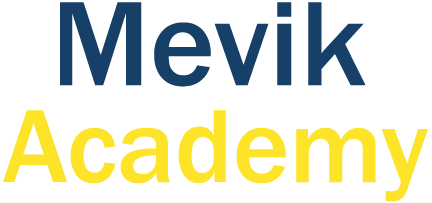Django
Django is a free and open-source web framework written in Python that follows the model-view-controller (MVC) architectural pattern. It provides a high-level and efficient way to build web applications rapidly by providing a set of tools and functionalities for common tasks, such as URL routing, database management, form handling, authentication, and templating.
Django is widely used by web developers for building all kinds of web applications, from simple websites to complex web applications with heavy traffic and data processing requirements
Why should we learn Django?
Web Development
Django is primarily used for web development, and it provides a robust and scalable framework for building web applications of various sizes and complexities. Django's built-in features, such as its ORM (Object-Relational Mapping) for database management, templating engine for rendering dynamic web pages, and built-in support for user authentication and authorization, make it a popular choice for developing web applications across different domains.
Backend Development
Django is commonly used for building the backend of web applications, which involves handling business logic, processing requests, and managing databases. Django's powerful routing and request handling capabilities, along with its built-in support for data models and databases, make it an ideal framework for building backend APIs and services that are used by front-end applications, mobile apps, and other systems.
Content Management Systems (CMS)
Django provides a solid foundation for building content management systems (CMS) and other content-driven websites. Django's admin interface, which is automatically generated based on the data models defined in the application, makes it easy to manage content, user accounts, and permissions.
Rapid Prototyping
Django's "batteries-included" philosophy, which includes a wide range of built-in features, libraries, and tools, makes it a popular choice for rapid prototyping of web applications. Django's scaffolding capabilities, such as its automatic admin interface and built-in support for user authentication, can help developers quickly create functional prototypes for testing and validation purposes.
E-commerce Applications
Django is commonly used for building e-commerce applications, as it provides the necessary tools for handling product catalogs, shopping carts, payment gateways, and order processing. Django's templating engine and form handling capabilities make it easy to build user-friendly and interactive e-commerce websites.
Social Media Applications
Django's robust authentication and authorization system, along with its support for user profiles, permissions, and social authentication, make it a popular choice for building social media applications, such as community forums, social networks, and user-generated content platforms.
Why Clients Chose us?
Start with the Basics
We begin by introducing the fundamental concepts of web development, including the client-server architecture, HTTP protocol, and MVC pattern. Then move on to Django's core concepts, such as models, views, templates, and URL routing. Ensure that students understand the key components of a Django project and how they interact with each other.
Read MoreCollaboration and Peer Learning
We encourage collaboration and peer learning among students. Assign group projects or pair programming exercises to foster teamwork and encourage students to learn from each other. Encourage students to share their knowledge, experiences, and challenges, and facilitate discussions, code reviews, and feedback sessions to promote a collaborative learning environment.
Read MoreProvide Real-world Examples
We use real-world examples and practical scenarios to demonstrate how Django is used in building web applications. Show examples of actual Django projects, discuss their functionalities, and explain how different components work together. This helps students understand the real-world applications of Django and motivates them to learn more.
Read MorePractical Application
We emphasize the practical application of Django by integrating real-world projects or case studies into the curriculum. This allows students to apply their theoretical knowledge in real-world scenarios, helping them develop problem-solving skills and build a portfolio of projects that can showcase their skills to potential employers.
Read MoreHands-on Exercises
We encourage students to engage in hands-on exercises and coding projects to reinforce their learning. Provide them with opportunities to create their own Django projects, work with Django's built-in features, and build functional web applications from scratch. Assign coding exercises, projects, and mini-projects to help students gain practical experience and build their confidence in using Django.
Read MoreStay Updated
We and our students are intentionally updated with the latest developments in Django, including updates to the framework, new features, best practices, and community trends. Incorporate these updates into your teaching materials and examples to ensure that students learn the most current and relevant information about Django.
Read Morestrategy development
Django Market
Job Opportunities
The demand for Django developers is reflected in the job market, with numerous job opportunities available for skilled Django developers in various industries and organizations. Django developers can find job opportunities in web development agencies, software companies, startups, enterprises, and as freelancers or consultants.
Scalability and Robustness
Django is known for its scalability and robustness, making it suitable for building complex and large-scale web applications. As businesses and organizations increasingly require web applications that can handle high traffic, large datasets, and complex functionalities, the demand for Django developers who can build scalable and robust applications is expected to rise.
Open Source Community
Django is an open-source framework with a large and active community of developers who contribute to its development and maintenance. The open-source nature of Django ensures continuous updates, improvements, and support, making it a reliable choice for businesses and developers alike.
Rapid Application
Development (RAD)
Django follows a rapid application development (RAD) approach, allowing developers to build web applications quickly and efficiently. This makes Django a preferred choice for startups and businesses that need to develop web applications rapidly and get them to market faster.
